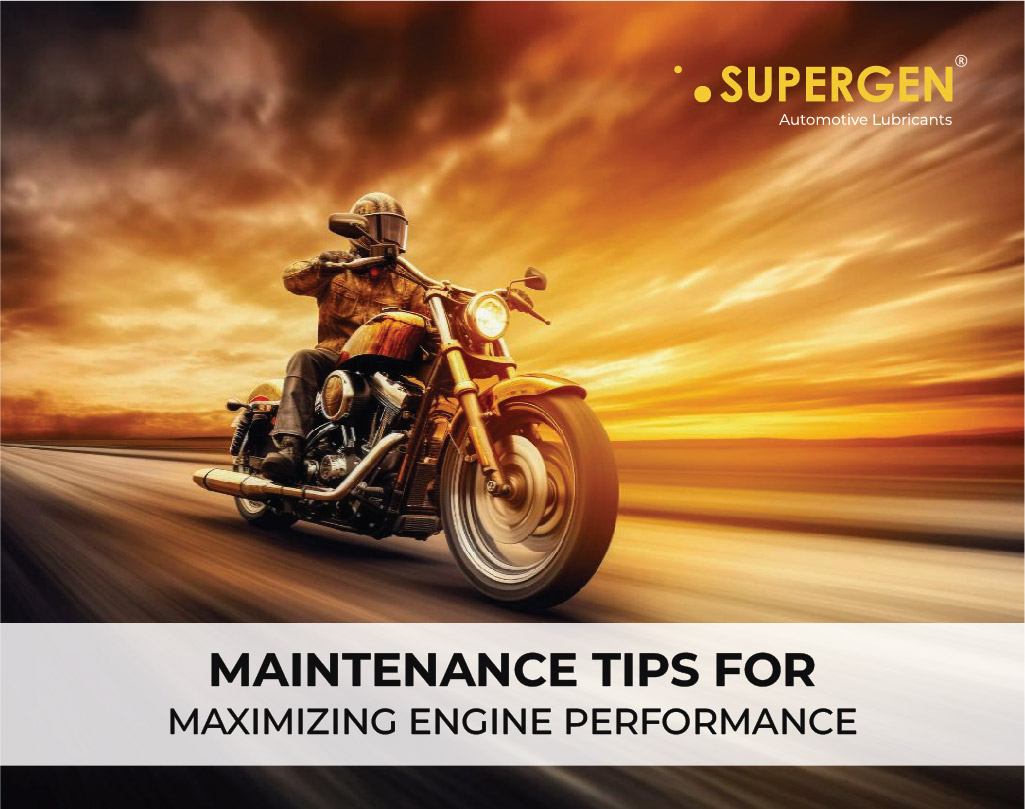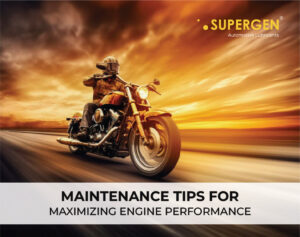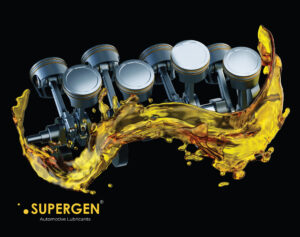When it comes to keeping your vehicle running smoothly and efficiently, engine performance is paramount. A well-maintained engine not only ensures a smoother ride but also extends the lifespan of your vehicle, improves fuel efficiency, and reduces the likelihood of costly repairs.
For automotive enthusiasts and everyday drivers alike, understanding how to maintain your engine is crucial.
In this blog, we’ll explore essential maintenance tips to maximize engine performance, with a special focus on the role of high-quality automotive oil.
Why Engine Maintenance Matters
Your vehicle’s engine is the heart of its operation. It converts fuel into mechanical energy, powering your car’s movement.
Over time, however, engines can suffer from wear and tear, leading to decreased performance, reduced fuel efficiency, and even engine failure.
Regular maintenance is the key to preventing these issues and ensuring your engine runs at its best.
Proper engine maintenance not only enhances performance but also contributes to environmental sustainability. A well-tuned engine emits fewer pollutants, making it a greener choice for the planet.
By following these maintenance tips, you can keep your engine in top shape while also doing your part for the environment.
1. Regular Oil Changes: The Lifeline of Your Engine
One of the most critical aspects of engine maintenance is regular oil changes. Engine oil lubricates the moving parts of your engine, reducing friction and preventing overheating. Over time, oil breaks down and becomes contaminated with dirt, debris, and metal particles, which can harm your engine.
How Often Should You Change Your Oil?
The frequency of oil changes depends on several factors, including the type of oil you use, your driving habits, and your vehicle’s make and model.
Conventional oil typically requires changes every 3,000 to 5,000 miles, while synthetic oil can last up to 7,500 to 10,000 miles. Always refer to your vehicle’s owner’s manual for specific recommendations.
Choosing the Right Oil
Not all engine oils are created equal. High-quality synthetic oils, like those offered by Supergen Automotive Lubricants, provide superior protection and performance.
Synthetic oils are designed to withstand extreme temperatures, reduce engine wear, and improve fuel efficiency. They also offer better viscosity stability, ensuring consistent performance in both hot and cold conditions.
2. Keep Your Engine Clean
A clean engine is a happy engine. Dirt and grime can accumulate on your engine’s exterior, leading to overheating and reduced performance. Regularly cleaning your engine bay can help prevent these issues.
How to Clean Your Engine Safely
1. Cool Down: Ensure your engine is completely cool before cleaning.
2. Cover Sensitive Components: Use plastic bags or waterproof covers to protect sensitive parts like the alternator, air intake, and electrical components.
3. Use a Degreaser: Apply a high-quality engine degreaser to break down grease and grime.
4. Rinse Gently: Use a low-pressure hose to rinse off the degreaser. Avoid high-pressure washers, as they can damage engine components.
5. Dry Thoroughly: Allow the engine to air dry or use a microfiber cloth to remove excess moisture.
3. Replace Air Filters Regularly
Your engine’s air filter plays a crucial role in maintaining optimal performance. It prevents dirt, dust, and debris from entering the engine, ensuring a clean air supply for combustion. A clogged air filter can restrict airflow, leading to reduced power, decreased fuel efficiency, and increased emissions.
When to Replace Your Air Filter
Most manufacturers recommend replacing the air filter every 12,000 to 15,000 miles, but this can vary based on driving conditions. If you frequently drive in dusty or polluted environments, you may need to replace it more often. Check your owner’s manual for specific guidelines.
4. Monitor and Maintain Proper Fluid Levels
In addition to engine oil, your vehicle relies on several other fluids to operate efficiently. These include coolant, transmission fluid, brake fluid, and power steering fluid. Regularly checking and maintaining these fluid levels is essential for optimal engine performance.
Coolant
Coolant, also known as antifreeze, regulates your engine’s temperature, preventing it from overheating or freezing. Check your coolant level regularly and top it off as needed. Be sure to use the correct type of coolant for your vehicle, as specified in your owner’s manual.
Transmission Fluid
Transmission fluid lubricates the moving parts of your transmission, ensuring smooth gear shifts and preventing overheating. Low or dirty transmission fluid can lead to poor performance and even transmission failure.
Check your transmission fluid level regularly and replace it according to your vehicle’s maintenance schedule.
Brake Fluid
Brake fluid is essential for safe and effective braking. Low or contaminated brake fluid can compromise your vehicle’s braking performance, posing a safety risk. Check your brake fluid level regularly and replace it as needed.
Power Steering Fluid
Power steering fluid makes it easier to turn your steering wheel, especially at low speeds. Low or dirty power steering fluid can lead to difficulty steering and increased wear on your steering components.
Check your power steering fluid level regularly and top it off as needed.
5. Inspect and Replace Spark Plugs
Spark plugs are responsible for igniting the air-fuel mixture in your engine’s combustion chambers. Over time, spark plugs can become fouled or worn, leading to misfires, reduced power, and decreased fuel efficiency.
When to Replace Spark Plugs
Most spark plugs need to be replaced every 30,000 to 50,000 miles, but this can vary based on the type of spark plug and your driving conditions. Consult your owner’s manual for specific recommendations.
Choosing the Right Spark Plugs
High-quality spark plugs, such as those made from iridium or platinum, offer better performance and longevity compared to standard copper spark plugs. They provide a stronger spark, leading to more efficient combustion and improved engine performance.
6. Check and Maintain the Timing Belt
The timing belt synchronizes the rotation of the crankshaft and camshaft, ensuring that your engine’s valves open and close at the correct times. A worn or broken timing belt can cause severe engine damage, including bent valves and piston damage.
When to Replace the Timing Belt
Most timing belts need to be replaced every 60,000 to 100,000 miles, but this can vary based on your vehicle’s make and model. Check your owner’s manual for specific recommendations.
Signs of a Worn Timing Belt
– Engine Misfires: If your engine is misfiring, it could be a sign that the timing belt is worn or misaligned.
– Ticking Noise: A ticking noise coming from the engine could indicate a loose or worn timing belt.
– Engine Won’t Start: If your engine won’t start, it could be due to a broken timing belt.
7. Use Fuel System Cleaners
Over time, deposits can build up in your fuel system, including the fuel injectors, intake valves, and combustion chambers. These deposits can restrict fuel flow, leading to reduced power, decreased fuel efficiency, and increased emissions.
Benefits of Fuel System Cleaners
Fuel system cleaners, such as those offered by Supergen Automotive Lubricants, help remove these deposits, restoring your engine’s performance and efficiency.
Regular use of a high-quality fuel system cleaner can improve fuel economy, reduce emissions, and extend the life of your engine.
How Often to Use Fuel System Cleaners
Most manufacturers recommend using a fuel system cleaner every 3,000 to 5,000 miles, but this can vary based on your driving conditions. Check the product instructions for specific recommendations.
8. Monitor Your Engine’s Performance
Regularly monitoring your engine’s performance can help you identify potential issues before they become serious problems. Pay attention to any changes in your vehicle’s performance, such as reduced power, decreased fuel efficiency, or unusual noises.
Use an OBD-II Scanner
An On-Board Diagnostics (OBD-II) scanner can help you monitor your engine’s performance and identify any issues. These scanners plug into your vehicle’s OBD-II port and provide real-time data on your engine’s operation, including trouble codes that can help you diagnose problems.
Common Signs of Engine Trouble
– Check Engine Light: If your check engine light comes on, it could indicate a problem with your engine. Use an OBD-II scanner to diagnose the issue.
– Reduced Power: If your vehicle is struggling to accelerate or maintain speed, it could be a sign of engine trouble.
– Unusual Noises: Knocking, ticking, or grinding noises coming from your engine could indicate a problem that needs attention.
Final Thoughts
Maximizing engine performance requires a combination of regular maintenance, high-quality products, and attentive monitoring.
By following these maintenance tips, you can keep your engine running smoothly, improve fuel efficiency, and extend the life of your vehicle. Remember, the key to a healthy engine is using high-quality automotive oil, like the ones offered by Supergen Automotive Lubricants.
Regular oil changes, along with proper maintenance of other engine components, will ensure your vehicle performs at its best for years to come.
Investing in your engine’s health not only saves you money in the long run but also provides a safer and more enjoyable driving experience. So, take the time to care for your engine- it’s the heart of your vehicle, and it deserves the best.
FAQ’s
1. How often should I change my engine oil?
The frequency of oil changes depends on the type of oil you use and your driving conditions. Conventional oil typically requires changes every 3,000 to 5,000 miles, while synthetic oil can last up to 7,500 to 10,000 miles.
Always refer to your vehicle’s owner’s manual for specific recommendations.
2. Can I use any type of engine oil for my vehicle?
No, it’s important to use the oil type recommended by your vehicle’s manufacturer. Using the wrong oil can lead to poor engine performance, increased wear, and even damage.
High-quality synthetic oils, like those from Supergen, are often the best choice for optimal engine protection and performance.
3. What are the signs that my engine needs maintenance?
Common signs include the check engine light turning on, reduced power or acceleration, unusual noises (knocking, ticking, or grinding), and decreased fuel efficiency.
Regularly monitoring your engine’s performance and addressing issues early can prevent more serious problems down the road.








